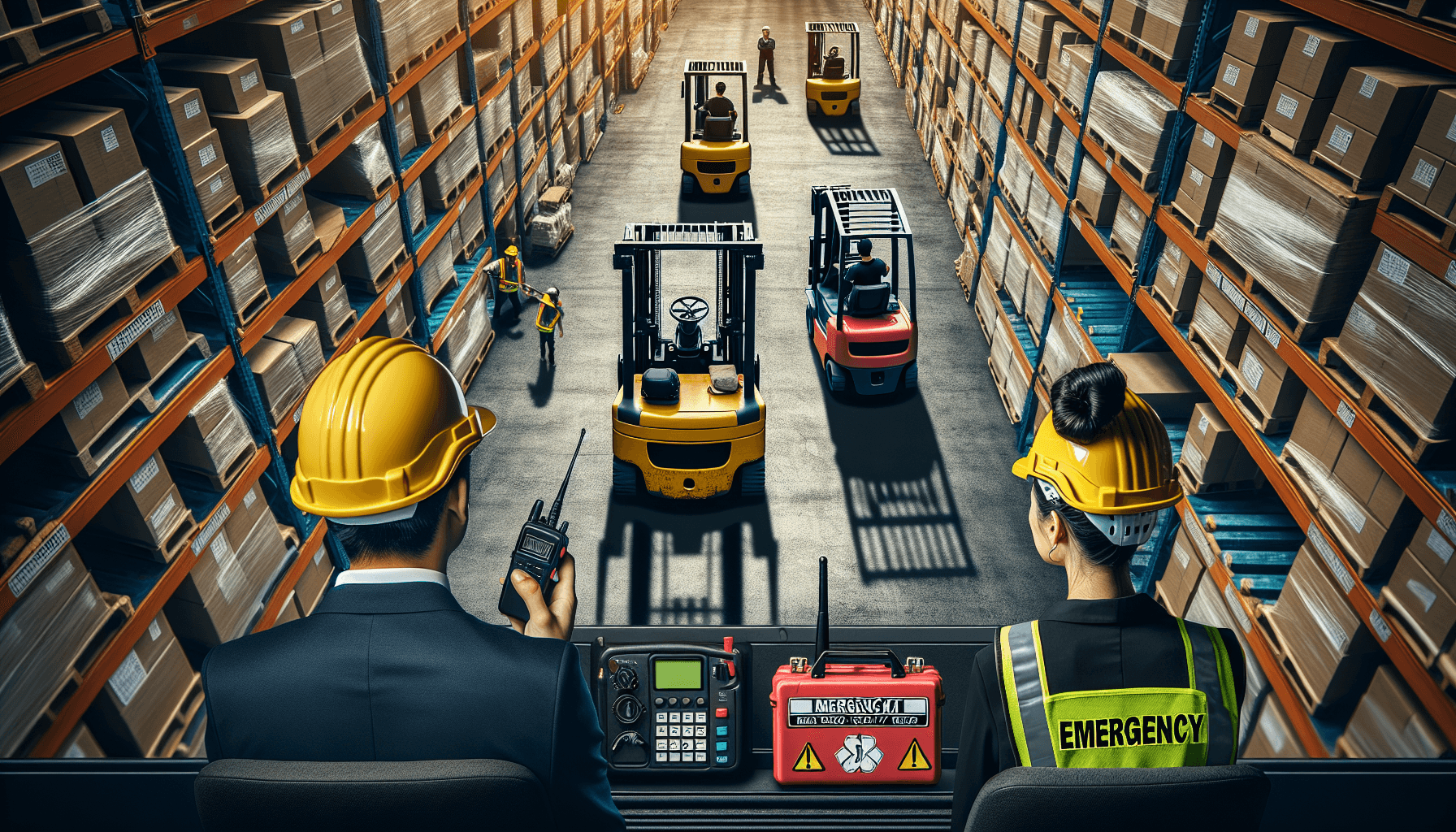Forklift fleet emergencies can be stressful and challenging to handle. Whether it’s a mechanical breakdown, an accident, or another unexpected event, it’s crucial for businesses to have a plan in place to effectively manage and resolve these emergencies. In this article, we will discuss some essential strategies and tips to help you handle forklift fleet emergencies.
Proactive Maintenance and Inspections
One of the best ways to minimize forklift fleet emergencies is to implement a proactive maintenance and inspection program. Regularly scheduled maintenance can help identify any potential issues before they escalate into emergencies. It is essential to conduct thorough inspections of your forklifts, including checking for signs of wear and tear, hydraulic leaks, faulty brakes, and any other potential safety hazards.
Investing in fleet management software and telematics can also help monitor the health and performance of your forklift fleet in real-time. These systems can provide valuable data and alerts, allowing you to address any potential problems promptly.
Additionally, it is crucial to have a well-documented maintenance schedule and ensure that all maintenance tasks are carried out by qualified technicians. Regularly servicing and maintaining your forklifts will not only increase their lifespan but also reduce the likelihood of unexpected breakdowns and emergencies.
Employee Training and Safety Protocols
Proper employee training is paramount in preventing forklift fleet emergencies. All forklift operators should undergo comprehensive training programs to ensure they understand the equipment, safety protocols, and emergency procedures.
Regularly reinforce safety protocols and provide refresher training sessions to keep your operators up to date on best practices. Remind them of the importance of wearing personal protective equipment (PPE), following speed limits, and maintaining clear visibility while operating the forklift. Encourage a culture of safety and accountability within your organization.
In addition to operator training, it’s essential to educate other employees who may work in close proximity to forklifts. Warehouse personnel, supervisors, and maintenance staff should be aware of forklift safety procedures to prevent accidents and emergencies.
Emergency Response Plan
Having a well-defined emergency response plan is crucial during forklift fleet emergencies. Create a step-by-step guide that outlines the necessary actions to take in various emergency scenarios, such as accidents, tip-overs, or equipment malfunctions. Assign responsibilities and ensure everyone in your organization is aware of their roles and responsibilities.
Include contact information for emergency services, such as local fire departments and medical facilities, in your emergency response plan. Specify the location of emergency exits, first aid kits, and fire extinguishers in your facility.
Regularly review and update your emergency response plan to account for any changes in your facility layout, equipment inventory, or safety procedures. Conduct drills and simulations to ensure that all employees are familiar with the emergency response protocols.
Establish Communication Channels
Effective communication is vital during forklift fleet emergencies. Ensure that your employees have a reliable means of communication, such as two-way radios or mobile phones, to report emergencies promptly. Establish a chain of command and designate an emergency contact person who can coordinate responses and liaise with emergency services if needed.
Encourage a culture of open communication and create an environment where employees feel comfortable reporting potential safety hazards or near-miss incidents. This feedback can help identify areas for improvement and prevent emergencies before they happen.
Partner with a Forklift Fleet Management Company
If managing and handling forklift fleet emergencies is proving to be overwhelming, consider partnering with a forklift fleet management company like HCO Innovations. These companies specialize in providing comprehensive fleet management solutions, including maintenance, training, safety audits, and emergency response planning.
By outsourcing your forklift fleet management needs, you can benefit from their expertise and experience in handling emergencies effectively. They can help you develop tailored plans and provide ongoing support to ensure your fleet operates safely and efficiently.
Conclusion
Forklift fleet emergencies can disrupt operations, cause injuries, and potentially lead to financial losses. By implementing proactive maintenance and inspections, providing proper employee training and safety protocols, developing an emergency response plan, establishing clear communication channels, and partnering with a forklift fleet management company, you can effectively handle and minimize forklift fleet emergencies.

